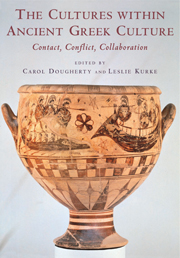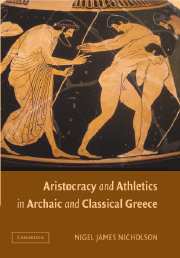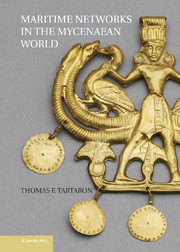The Cultures within Ancient Greek Culture
Challenging the conventional perception of ancient Greece as the paradigm for unified models of culture, this study offers an alternative view of archaic and classical Greece. It is one in which the contact, conflict and collaboration of a variety of "subcultures" combine to comprise what we now understand as "Greekness." The volume argues for the recognition and analysis of cultural contact within Greece, focusing on the micromechanics of cultural exchange, the permeability of cultural boundaries, and the significance of Delphi's geographically marginal, yet symbolically central, location as an "internal contact zone."
- Important intervention in multiculturalism and classics debate
- Theoretical update of Cultural Poetics in Archaic Greece
- Important interdisciplinary approach to cultural contacts in archaic/classical Greece
Product details
June 2011Paperback
9780521285193
310 pages
244 × 170 × 17 mm
0.5kg
Available
Table of Contents
- 1. Introduction Carol Dougherty and Leslie Kurke
- Part I. The Circulation of Cultures:
- 2. 'Culture' of 'cultures'?: Hellenism in the late-sixth century Jonathan M. Hall
- 3. The Aristonothos Krater: competing stories of conflict and collaboration Carol Dougherty
- 4. Hybridity and the cultures within Greek culture Carla Antonaccio
- Part II. Negotiation and Conflict at the Margins: The Case of Delphi:
- 5. Aesop and the contestation of Delphic authority Leslie Kurke
- 6. Aristocratic victory memorials and the absent charioteer Nigel Nicholson
- 7. Framing and gift: the Siphnian treasury at Delphi and the politics of public art Richard T. Neer
- Part III. Athens: Convergences and Diversity within the Polis:
- 8. The pipes are brawling: conceptualizing musical performance in archaic Athens Richard P. Martin
- 9. The sound of cultural conflict: Kritias and the culture of Mousike in Athens Peter Wilson
- 10. Becoming the 'other': attitudes and practices at Attic cemeteries Katarzyna Hagemajer Allen
- 11. Postscript: culture, thin coherence, and the persistence of politics Josiah Ober.







